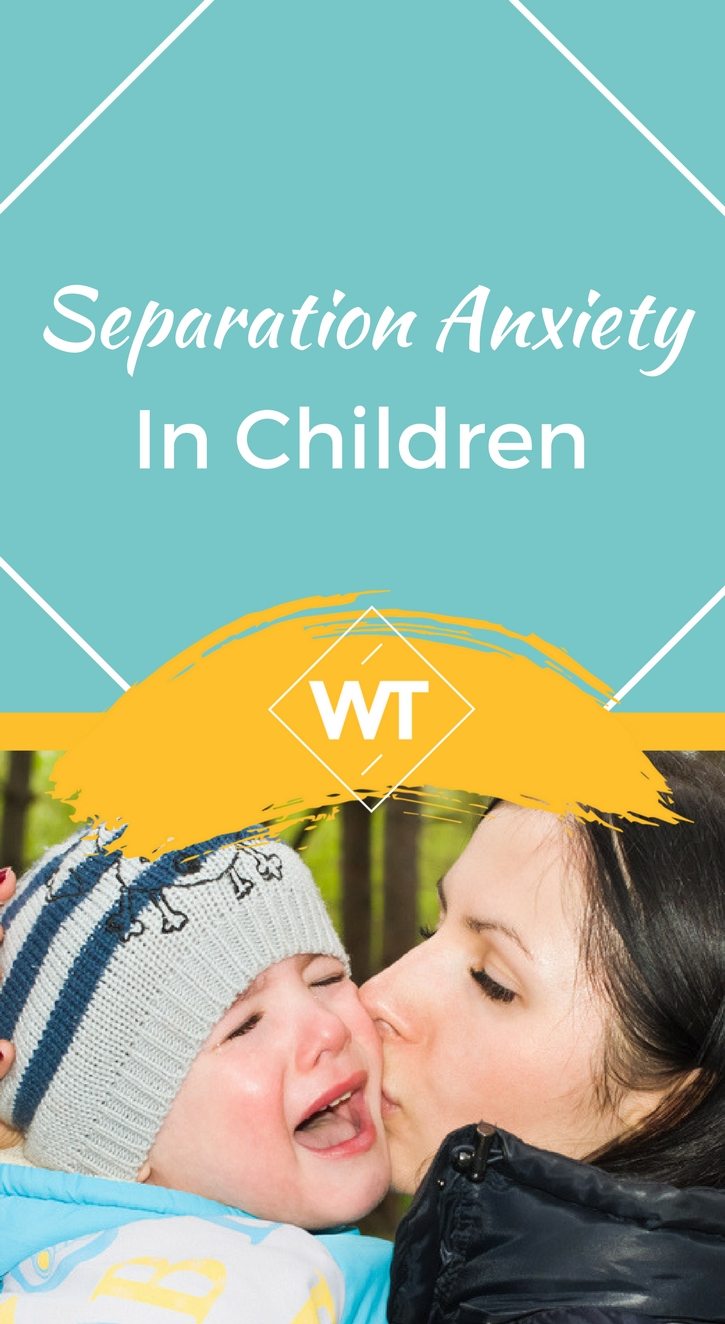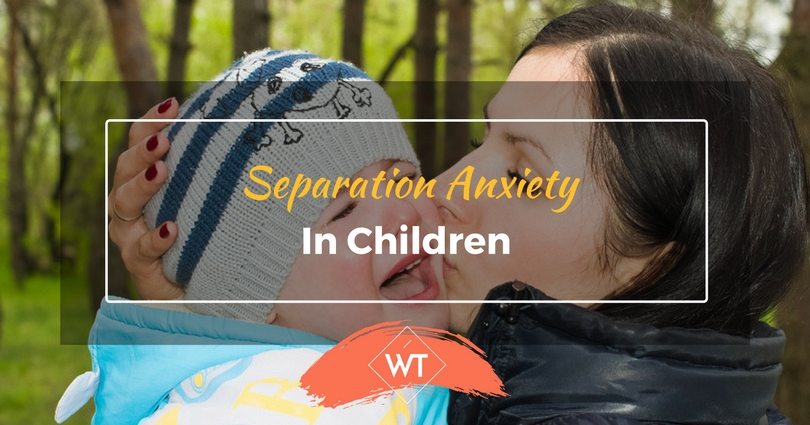Separation Anxiety in Children

Separation anxiety usually occurs when a child is separated from his/her primary care giver—usually the mother. When children are born, they are totally dependent on their parents and other family members for everything. Parents are also extremely protective about their children.
As children start growing up, they begin recognizing their parents and family members and become emotionally attached to them. Mothers are always around their little ones and spend their whole day with the child. It seems as if their whole world revolves around each other.
But, inevitably, a point comes when your little one has to leave for school. The child has to move out of the protective home environment and spend time with many unknown people in the outside world. This is when the term “Separation Anxiety” comes in.
Case Study
Maria had a successful career and was a Manager with a telecom company before the birth of her son.
She decided to stay at home to take care of her little one. She is a doting mother. She has been with her child night and day for two and a half years. Now, she has enrolled her son in a play school.
As her son was previously always with Maria, he is finding it extremely difficult to stay in school without his mother. He is crying all the time and is not able to settle down there. Maria is also worried that her son is not able to handle the separation from his mother.
Separation Anxiety
Children feel anxious, worried and insecure when separated from their parents or family members. Though painful, separation anxiety is a part of the developmental process. Separation anxiety is commonly experienced by children when they join school and have to leave the comfortable home environment and their parents.
Some parents handle this tactfully while others get emotionally disturbed on seeing their children upset. But, if we carefully condition our children about the change in their lifestyle/routine and the new environment, this can be handled.
- Familiarize your child with the change that is going to come in their life. Tell your child that he or she will be going to school in a few days, where they will meet a teacher, make new friends, play and have lots of fun.
- When you go for the child’s admission to the school, take him/her along and show them around, so that they do not find it strange on day one of their school.
- Try to alter the routine of your child to closer-match the school’s schedule to settle their wake-up and eating-time habits.
- If possible (and if the school has such arrangements), take the child to meet the class teacher a couple of times—or at least once—before joining the school.
- If you have a support-system at home (like your parents or a maid), try to leave the child with them for some time every day, so that the child is not uncomfortable leaving you on day one of school.
- Try to reinforce the positive behavior of your child with rewards, like if he/she settles into the new school well, take the child out to the park in the evening or make his/her favorite dish at home to say that you behaved well.
- Try to toilet-train your child before starting school or if the child is not completely trained, inform the teacher about the same so that proper care is taken and the child is comfortable. It will also help the child to settle down in the new environment fast.
Conclusion
Being a parent, it is extremely difficult for you to see your child crying or even uncomfortable. Most children feel separation anxiety in the initial school days and show symptoms of the same by crying, shouting, clinging, etc. It is natural for them to feel uncomfortable when separated from parents and sent in the company of so many new people away from the cozy home environment. The best way to deal with this is to:
- Be emotionally strong as a parent
- Have patience with the change and the child’s reaction
- Familiarize your child with the school and the new environment
- Try to reinforce the positive behavior
- Say “bye” as normally as possible
Try to follow these simple things and you will see that everything will fall in place in a few day’s time. Separation anxiety will eventually fade away and your child will start enjoying this bright new chapter in life.
You can help your child combat separation anxiety disorder by taking the above steps to make him or her feel safer. A congenial environment at home can make your child more comfortable.









Leave a Reply